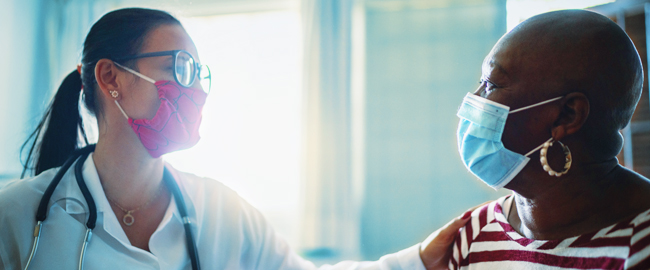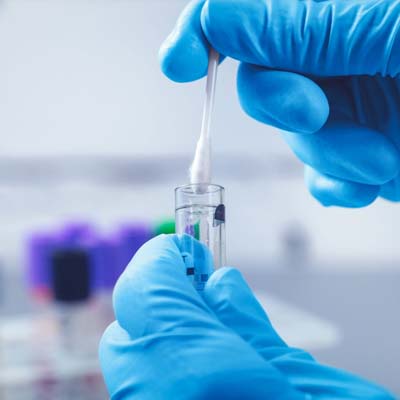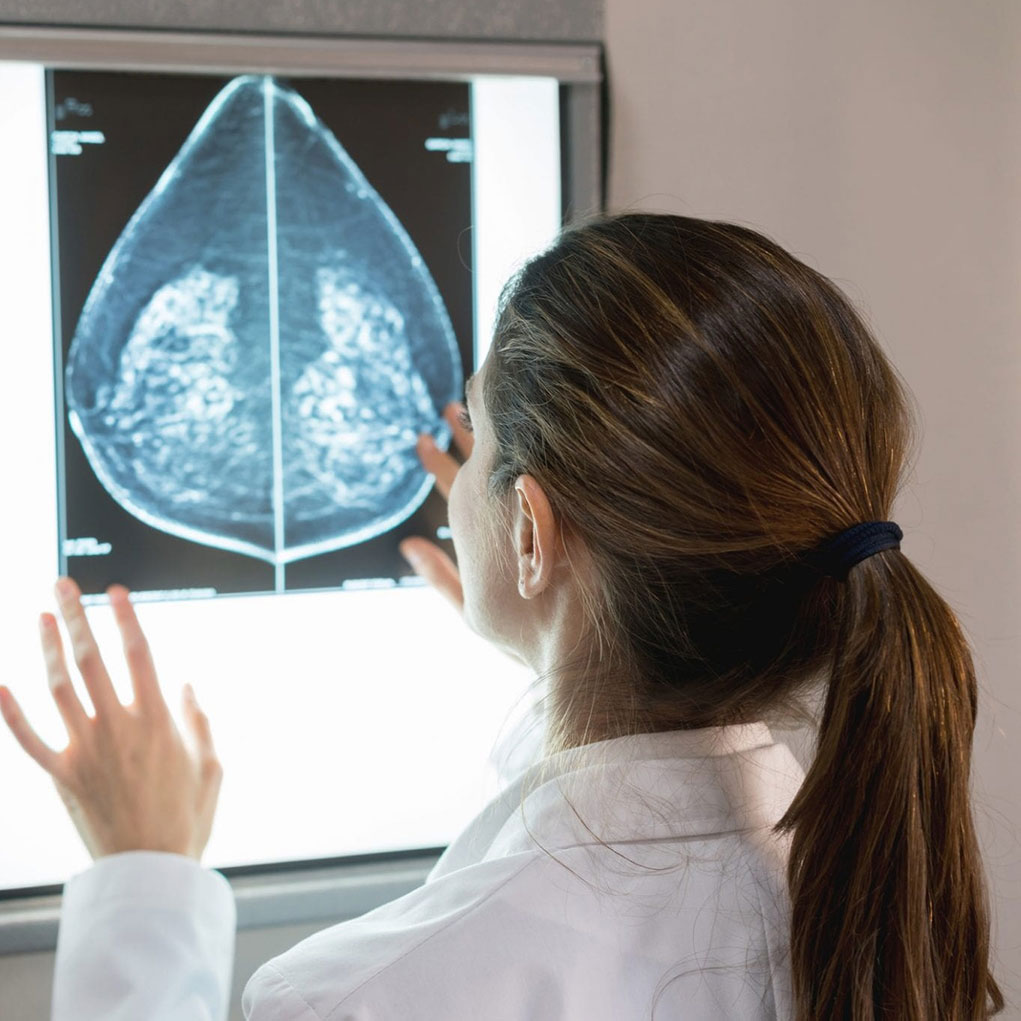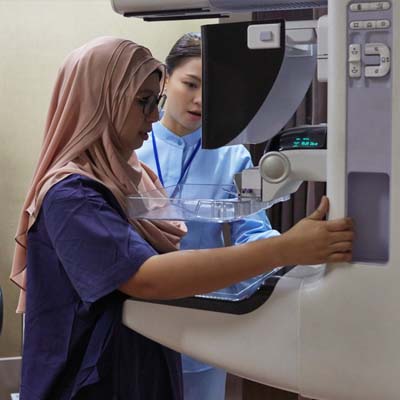Breast Cancer Treatment and Care
The Largest Breast Cancer Program in New Jersey
John Theurer Cancer Center is home to New Jersey’s largest breast cancer and breast imaging program, offering you a level of experience and expertise that’s unmatched across the state. We help you navigate your breast cancer diagnosis and treatment as a tight-knit team.
Named New Jersey’s Premier Cancer Center by U.S. News & World Report, our globally recognized cancer experts deliver the most effective and personalized breast cancer treatment options available.
Comprehensive Services
John Theurer Cancer Center offers comprehensive services for all types of benign and cancerous breast conditions.
Our breast health services include breast cancer diagnosis, treatment, support and survivorship navigators, as well as routine breast screenings and care for benign breast diseases. We also provide genetic counseling and testing and many other services for patients with high risk for breast cancer.
We treat all types of benign and cancerous breast conditions, including:
- Ductal carcinoma in situ
- Inflammatory breast cancer
- Invasive ductal carcinoma
- Invasive lobular carcinoma
- Triple-negative breast cancer
- Benign (non-cancerous) breast conditions
Our Breast Care Program provides the most advanced diagnostic screening and imaging services throughout New Jersey and the Greater New York Metropolitan Area. You’ll also find advanced, top-rated breast cancer services at convenient locations across our region.
- John Theurer Cancer Center at Hackensack University Medical Center
- HOPE Tower at Jersey Shore University Medical Center
- JFK University Medical Center
- Hackensack University Medical Center Institute For Breast Care
- Mountainside Medical Center's Women's Breast Center
- Ocean University Medical Center
- Palisades Medical Center
- Riverview Medical Center
- Southern Ocean Medical Center
- Toms River Regional Cancer Center
Frequently Asked Questions
The imaging specialists at our cancer center have advanced training in breast imaging and only interpret breast images, providing them with laser-focused expertise.
How is Breast Cancer Treated?
- Chemotherapy and Personalized Treatment: We study your breast cancer tumor to identify genetic mutations and learn about the molecular signals involved in your breast cancer’s growth. We use the results to match you with breast cancer therapies that will best target the biology of your breast cancer.
- Hormonal Therapy: If lab tests determine that your breast cancer tumor is estrogen-positive (ER+) or progesterone-positive (PR+), this breast cancer treatment option can be used to block your body's natural hormones from reaching any remaining breast cancer cells.
- Accelerated (Hypofractionated) Radiation Therapy: Eligible patients can receive a higher dose of radiation delivered over a shorter overall treatment course, reducing the number of weeks you need to come in for treatment.
- Brachytherapy: This treatment involves temporary or permanent implantation of radioactive substances to kill breast cancer cells.
- Image-Guided Radiation Therapy (IGRT): We take images of your breast cancer tumor before each treatment so we can customize the radiation to the breast cancer tumor’s size and shape as it shrinks and changes position, giving you only the dose you need and reducing exposure to noncancerous tissues.
- Intensity-Modulated Radiation Therapy (IMRT): IMRT directs radiation of various intensities, shaped to the contours of a breast cancer tumor, from a variety of angles to destroy tumor tissue while sparing normal breast tissue as much as possible.
- Prone Radiation Therapy: This advanced breast cancer treatment allows us to direct radiation to the breast while sparing lung and heart tissue and reducing the risk of late-term side effects.
Our breast surgeons are nationally recognized experts with extensive experience in every type of breast cancer surgery.
- Lumpectomy: This breast-conserving surgery removes the portion of the breast that contains the cancer, and some surrounding normal tissue.
- Mastectomy: The entire breast is removed, including all of the breast tissue. If both breasts are removed, this is called a double mastectomy.
What are the Next Steps Following Treatment?
Our breast reconstruction surgeons are skilled in the latest plastic and reconstructive surgery techniques, including breast implants and flap reconstruction procedures—groundbreaking breast reconstructive surgeries that require surgical expertise.
Our Research and Clinical Trials
At Hackensack Meridian Health, you may have the opportunity to participate in a clinical trial of new and exciting approaches to stem cell transplant. Our research has a strong focus on reducing the complications of transplant and also lowering the risk of disease recurrence. We are the first in the world to combine checkpoint inhibitors (drugs that inhibit the proteins cancer cells use to evade detection by the immune system) after transplantation, at a time when the immune system has the best opportunity to eliminate any remaining cancer cells.














